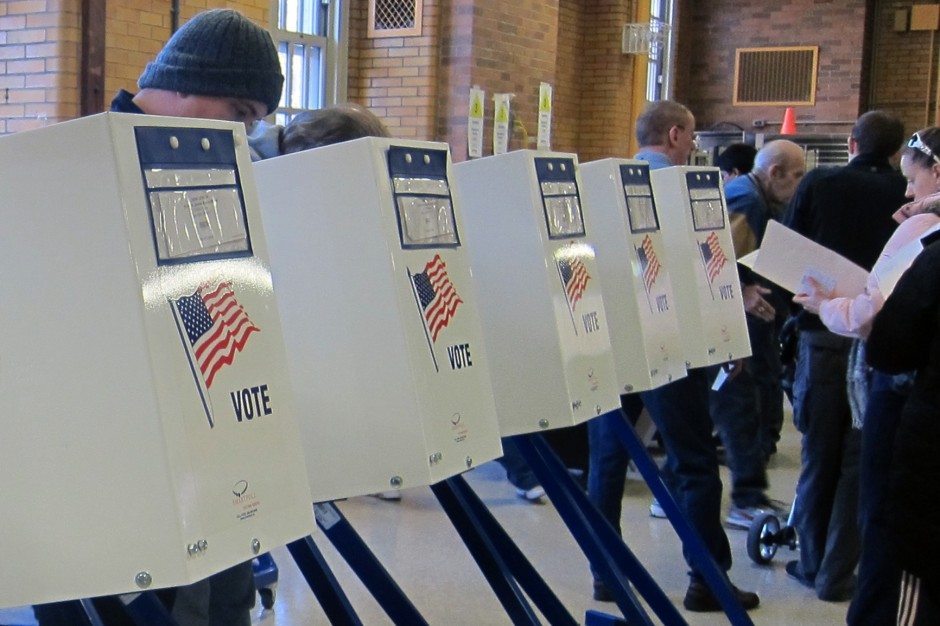Letter: Palmetto State Electoral Alternatives
LIFETIME POLITICIANS IN ULTRA-SAFE DISTRICTS = “ZERO ACCOUNTABILITY” Dear Editor, I am wYou must Subscribe or log in to read the rest of this content.
LIFETIME POLITICIANS IN ULTRA-SAFE DISTRICTS = “ZERO ACCOUNTABILITY”
Dear Editor,
I am w

11 comments
‘jungle primary entry’ is code for elect Democrats. Libertarian candidates elect Democrats.
Fits and Co. knows despite Obama shredding the Constitution and using E/O’s to make law-Democrats are LOSING elections from the dog catcher to the senate.Democrats can’t win elections unless they run as Republicans.
Since Obama was elected the Democrats have lost 75 house seats,11 senate seats, only hold 14 governorships and the Republicans control 69 of the 98 chambers in state legislatures.Conservatives control city councils and school boards (outside of major urban cities like Detroit, Baltimore etc…
DON”T trust libertarians on this issue-RINO”s and closet Democrats-trying to elect Democrats.American isolationism, legalized drugs and a perverted culture under the guise of personal freedoms.
” ‘jungle primary entry’ is code for elect Democrats. Libertarian candidates elect Democrats. ”
I guess that’s why Louisiana has them and the Republicans are in charge there.
I think what flip is trying to say is in SC the Repugs have gerrymandered the districts so they are virtually guaranteed to win; and have made it as difficult as possible for poor people and minorities to vote. So why mess with a good thing.
Name ONE minority that has not been allowed to vote! Give me the NAME and I will contact the DOJ.
Liar.
What about those of us who are Independent and have to vote. Party Politics is corrupt and money always wins even in small precincts. We need to have to prove citizen ship,residency and the ability to read and write. If you can not read and write you do not know if the vote you cast was right or not.
I have worked at the polls and I have seen corruption.
Multi-member districts would probably need some sort of primary to limit the number for a general ballot, otherwise, so many might decide to run that no ballot would have room — electronic or paper.
The author’s contention that a hypothetical district with 1/6 Libertarian voters would elect at least one Libertarian would only be sure if voters could only vote for one candidate and there were only six on the ballot.
The usual process is to winnow the field to a final ballot that has twice as many candidates as “seats” and each voter can vote for as many candidates as there are offices to fill. Then, if all the Libertarians in the above hypothetical district have the good discipline to vote only for one particular Libertarian (assuming one survived the winnowing) they might send one to Columbia.
Sure…there’s plenty of holes in the author’s hypothesis. I don’t love it….but I damn sure love the idea of bucking the trend and telling the status quo where to “shove it,” regardless of party, Dem, Rhino, Libertarian, Tea, you name it.
Get rid of the “lifetime” tenure and I think we all improve our individual position, regardless of what side of the “aisle” you want to sit upon.
“This would put these “lifetime” politicians on tenuous ground.”
……And you now have my undivided attention. Please proceed further, sir.
Throw them all out.
Elect someone who really represents you, and let us see how fucked up you *really* are!
Let us see what your idea of a “Republican” vs a Republican is.
“I can tell you that the biggest critique against voting reform is cost. I fail to see how having three elections is more cost effective than one, but whatever. Also, we are probably due some new voting machines anyway so why not fix it all at once?”
Well, that’s easily solved- voting costs could be substantially reduced by simply allowing for voting online. SSL & other security infrastructure already handles everything in the private sector fairly well, including identification.
I don’t think our masters want that, but since we are discussing things on “Fantasy Island” I figured I’d note it.
Awarding the masses their inner desires might be something you don’t want…but don’t let that stop you either I suppose. A fuller representation of what “Democracy” is might be enough for some within it to rethink allowing the masses full sway.
I think the “Jungle Primary” has some appeal to some people. I am not completely sold on the idea.
Some people have suggested combining several districts into one voting district to determine the top “vote getters” over these several districts. So you combine six districts, take the top six out of the total six districts and declare them the overall winners? On the surface, that sounds fine, but what if you have three homogenous political districts and three heterogeneous political districts? The three homogeneous districts would have an overwhelming impact on the final results. Fair or Unfair?